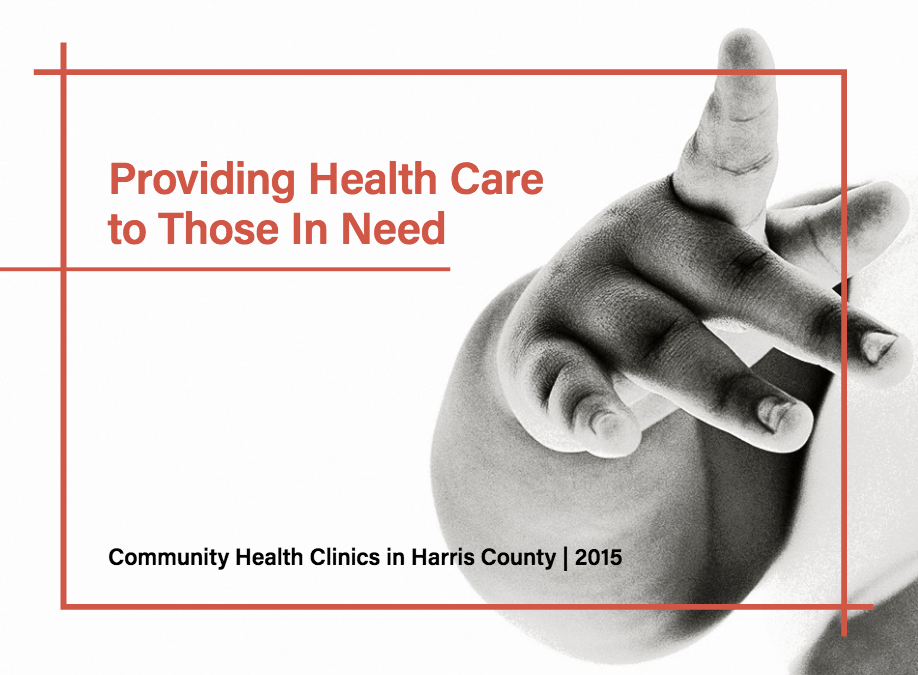
The report found that the number of community clinics serving Harris County has doubled since 2008. The survey shows that the 78 safety-net clinics currently operating in Harris County include Harris Health clinics, Federally Qualified Health Centers (FQHCs) and nonprofit clinics. Those clinics served almost 500,000 patients and provided 1.9 million patient visits in 2015, the report found. Researchers estimated that patient visits at these safety-net clinics are up 300 percent since 2008.
· Read the complete “Providing Health Care to Those in Need” report
“The good news is these community clinics are now meeting the demand for primary care for low-income families across Harris County,” said Jessica Pugil, founder of the evaluation firm Working Partner and co-author of the report. “In fact, together these clinics can even accommodate one-third more patients than they do right now. But to truly strengthen the health system, there needs to be more emphasis on population-based prevention and a better way to help patients access advanced care.”
The report found getting patient referrals to specialty care like cardiology, neurology and cancer care remains the biggest gap in services for the safety-net clinics.
“Every clinic surveyed named specialty care access as one of its greatest needs,” Pugil said. “This shows it’s critically necessary for clinics and specialty-care providers to organize a summit or similar collaboration and design a better model to help patients.”
Researchers also discovered that clinics have a growing need to add mental health providers to meet the increased demand for those services. The report found 75 percent of FQHCs in Harris County described a need to hire one or more mental health providers.
Researchers found almost two-thirds (64 percent) of patients served by community clinics in 2015 were uninsured. Clinic leaders said Texas’ decision not to expand Medicaid dramatically affects the number of uninsured patients and the ability for patients to pay for clinic services. The report found every FQHC and Harris Health clinic named Medicaid expansion as their “biggest policy concern.”
After surveying the clinics, researchers say three populations in particular remain at risk in Harris County: women of child-bearing age, people in need of mental health services and undocumented residents.
“As the political fight to limit funding for certain kinds of women’s health care does not appear to have an end in sight, there is still a real question about how women will be able to access primary care and family planning services,” Pugil said.
The report also found that even with a robust implementation of Medicaid expansion and the Affordable Care Act, undocumented residents will remain uninsured with very limited means to pay for necessary health care. Undocumented women and their unborn children are especially at risk, researchers said.
Five Houston-area philanthropic institutions that provide funding for health-related organizations sponsored the report: The Cullen Trust for Health Care, Episcopal Health Foundation, Houston Endowment, Rockwell Fund and The Simmons Foundation.
The report was co-authored by Jessica Pugil and Kara McArthur with Working Partner, Thomas Reynolds with the Institute for Health Policy at the UT School of Public Health, and Tim Schauer with Cornerstone Consulting Group.